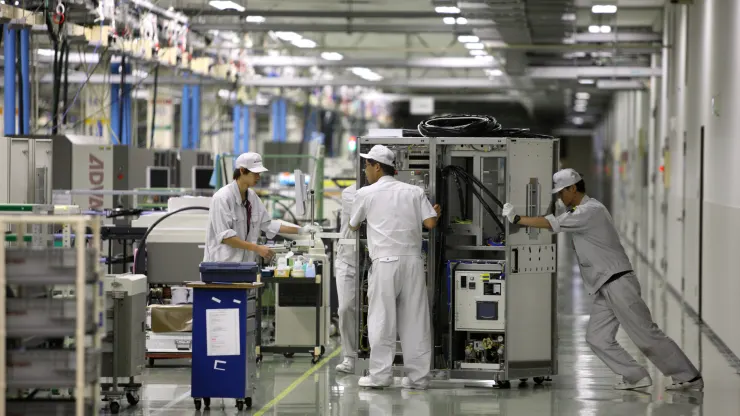Japan to Restrict Semiconductor Equipment Exports
On Friday, Yasutoshi Nishimura, Japan's trade and industry minister, announced that export controls will be imposed on 23 types of chipmaking equipment divided into six categories, requiring Japanese companies to seek export permissions for all regions....

0:00
/0:00
Facts
- On Friday, Yasutoshi Nishimura, Japan's trade and industry minister, announced that export controls will be imposed on 23 types of chipmaking equipment divided into six categories, requiring Japanese companies to seek export permissions for all regions.1
- The controls — reportedly meant to ensure the equipment isn't diverted for military purposes — include exceptions for the 42 territories Tokyo recognizes as having adequate export measures, including South Korea, Taiwan, and the US.2
- Japan said these measures aren’t meant to target any particular country, but they come as it has reportedly agreed in principle to join the US in preventing China from getting critical equipment to make cutting-edge chips.3
- In January, Japan and the Netherlands struck a three-way deal with the US to cut off Beijing's ability to import gear to produce the most advanced types of semiconductors, which could be used in sophisticated weaponry and machines.4
- Once the world leader in chip production, Japan remains a major supplier of chipmaking machines and semiconductors despite seeing its global market share fall to about 10%. Tokyo Electron and Screen make about one-fifth of chipmaking tools, while Shin-Etsu Chemical and Sumco produce most silicon wafers.5
- Meanwhile, Yoshimasa Hayashi, Japan's foreign minister, is set to meet his Chinese counterpart in Beijing on Saturday – the first such visit since December 2019 — as Tokyo calls for the quick release of a recently detained Japanese pharmaceutical-company employee.6
Sources: 1CNBC, 2CNN, 3The japan times, 4Ft, 5Al Jazeera and 6Wall Street Journal.
Narratives
- Pro-China narrative, as provided by Global times. Japan is capitulating to US pressure by formulating this discriminatory policy as Washington unilaterally weaponizes trade and technology issues against China in order to protect its own tech hegemony. But given the proven resilience of the Chinese tech sector, Japanese companies will suffer the most from Tokyo's decision to be a US pawn.
- Anti-China narrative, as provided by Unherd. Restricting Chinese access to advanced semiconductors is a matter of security to the democratic world. It’s crucial to halt China's development of advanced AI systems deployable for military and intelligence uses, and limiting its access to leading-edge chipmaking machinery from the US, Netherlands, and Japan will even the playing field in the mounting Cold War.






